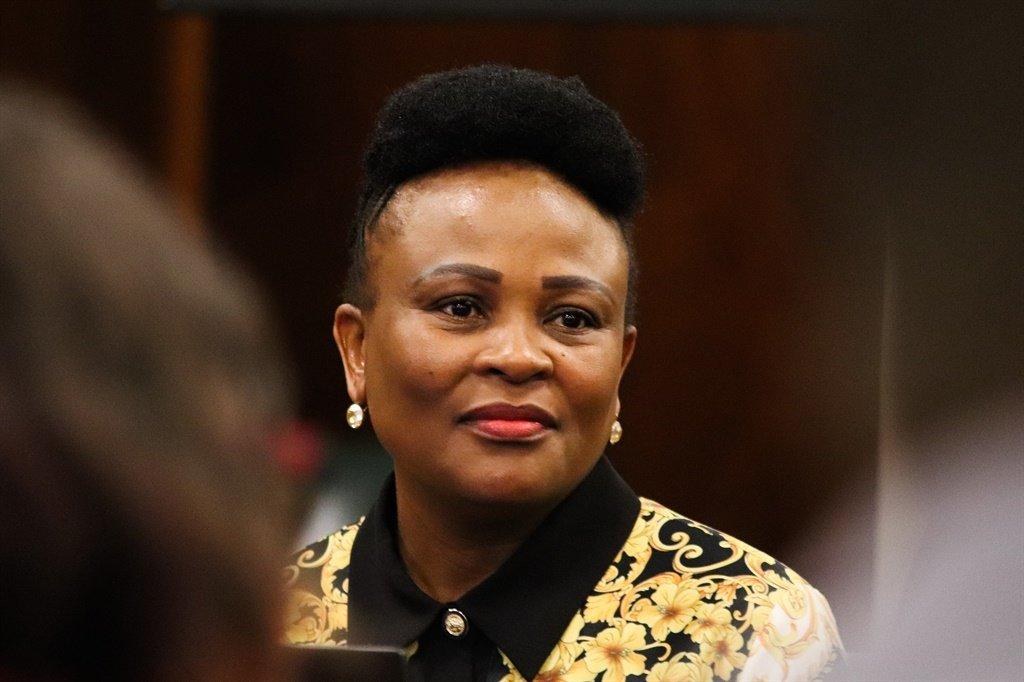Africa-Press – South-Africa. The Western Cape High Court questioned Public Protector Busisiwe Mkhwebane’s candour in arriving at its ruling to dismiss her application for interdicts against Parliament’s impeachment process and President Cyril Ramaphosa suspending her.
A unanimous decision of a full bench of the Western Cape High Court, comprising Judges Nathan Erasmus, Mokgoatji Dolamo and Derek Wille, handed down judgment on Friday morning.
The interdicts were sought, pending the second part of her application, and an application to the Constitutional Court to rescind its previous decision not to hear her application to rescind the ruling that gave Parliament the green light to continue.
The court also issued a partial personal costs order against Mkhwebane – she will have to pay the costs of the DA’s counsel from 7 May onwards.
The court decided against a punitive court order, despite “some deep suspicions about the conduct of Adv Mkhwebane”.
“[It] must have dawned on her, shortly after the refusal of the rescission application handed down by the apex court, that the shields she had raised to this inquiry process and the alleged bias of the third respondent [Ramaphosa], were doomed to failure,” the judgment reads.
“It is so that the papers presented by Adv Mkhwebane are replete with some ruinous allegations against the parliamentary respondents and against the presidential respondent. From an evaluation of the evidence presented in the papers, regretfully it seems apparent that she has been less than candid on many occasions during this unfortunate litigation between the parties.”
Busisiwe Mkhwebane suspension: ‘What kind of message are you sending?’ Holomisa asks Ramaphosa
The court found that Mkhwebane’s attempt to resuscitate a previously unsuccessful application to interdict Parliament’s impeachment process against her was “untenable and legally unsustainable”.
The court was referring to an October 2020 judgment, in which Judge Vincent Saldanha dismissed Mkhwebane’s application to halt the National Assembly’s removal proceedings against her, pending a judicial review of the National Assembly’s rules for the removal of a Chapter 9 head.
The ruling reads: “Further, an interim interdict will prevent the parliamentary respondents from performing their role of determining whether Adv Mkhwebane should be impeached or not.”
The court found it “highly unlikely” that the Constitutional Court would rescind its original rescission order.
“Moreover, the granting of the interim interdict would result in a material restriction of a critical feature of the oversight powers in respect of the applicant, and it would arrest the exercise of that power mid-stream.”
Mkhwebane’s mounting legal bill: Taxpayers cough up R67 million to defend reports, halt impeachment
Turning to Mkhwebane’s application to interdict Ramaphosa from suspending her, the court said the president could only suspend a Chapter 9 head once the parliamentary process was underway, meaning there were already “credible allegations of misconduct, incapacity or incompetence” against her.
“Significantly, a precautionary suspension is by no means punitive as Adv Mkhwebane will not be denied her salary during the period of her suspension.”
The court found no “convincing” or “cogent” evidence advanced by Mkhwebane that Ramaphosa was biased.
The court also didn’t find an “iota of material” that indicated Mkhwebane’s rights to dignity and administrative justice had been violated.
The president is “obliged to pursue his conditional duties and the public interest also needs to be served and preserved” – and any interference with the president’s powers would “violate the doctrine of the separation of powers”.
Late on Thursday afternoon, the Presidency announced that Ramaphosa had suspended Mkhwebane.
The announcement came while the National Assembly was debating the Presidency’s budget vote, which Ramaphosa delivered.
The debate was overshadowed by the recent allegations against Ramaphosa, which the Public Protector was investigating.
For More News And Analysis About South-Africa Follow Africa-Press






